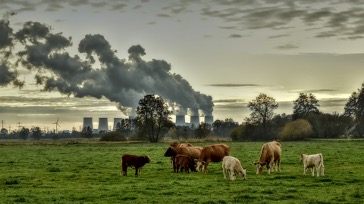- Client: Netherlands Ministry of Economic Affairs and Climate Action (EZK)
- Implementation period: January, 2022 - April, 2022 (Completed)
- Geographic coverage: The Netherlands
- Theme: Climate Change
- Topic: Climate Change Mitigation, Energy Policy, Renewable Energy
- Experts: Long Lam, Joris Moerenhout, Nora Cheikh, Henjo Jagtenberg, Hans Bolscher
The study for the Dutch Ministry of Economic Affairs and Climate (EZK) assesses carbon leakage risks for the Dutch non-ETS sectors, where stricter climate policies on fossil fuel consumption for these sectors are implemented. The study examines the risk of carbon leakage in two ways: a unilateral Dutch carbon pricing and an EU-wide carbon pricing. The carbon pricing policies can lead to a competitiveness loss depending on the significance of the costs, the availability and costs of abatement options and the room for non-ETS sectors to pass costs down the value chain. In this way, production/investment can shift to competitors in other countries/regions which face more lenient climate policies, therfore leading to carbon leakage.
It is found that currently non-ETS climate policy in the Netherlands is stricter compared to the key trading partners (i.e. Germany, France, Belgium, Spain and the UK), meaning stricter climate policy for non-ETS sectors could lead to carbon leakage. However, this may change in the future as key trading partners start to enforce stricter climate policies. The study finds that any carbon leakage risk of non-ETS sectors are expected to relate to production/investment shift to non-ETS and non-EU competitors, where an EU-wide carbon pricing would reduce the risk of carbon leakage significantly. It is noted that carbon leakage from Dutch non-ETS sectors could also lead to lower global CO2 emissions. For instance, carbon leakage from heated greenhouse agriculture to competitors which use unheated production would lead to an overall decrease in global CO2 emissions.
